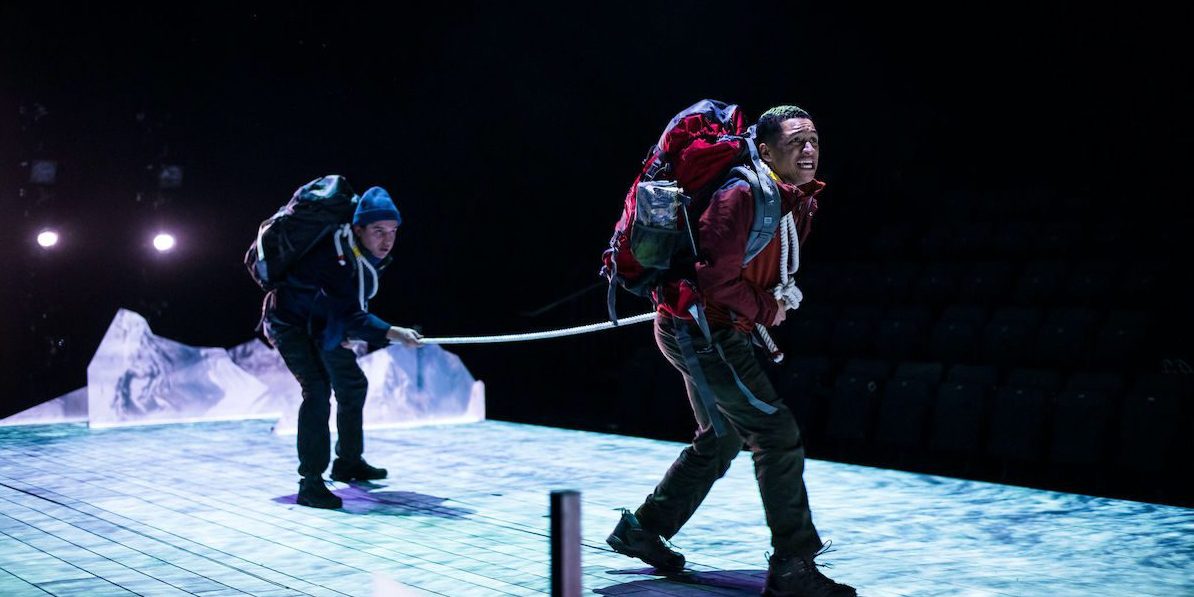‘Pilgrims’ dates from 2016 and has had performances at several venues around the country. It is well suited as a play for final-year students in that the three roles are demanding, all equal in weight, and really can only be played by young people not too distant in age from students themselves. As usual at the Guildhall the creative team is made up of experienced professionals who bring inventive discipline to sound, lighting, design and direction.
In essence, this is a study of the costs and benefits of male bravado and risk-taking. Dan and Will are both mountaineers who experienced early success and now seek to repeat and enhance their reputations by climbing an unscaled peak in Peru, despite rivalry in love and other differences that have emerged to disrupt their team dynamic. The action is broken up and played out of sequence, so we know from near the start that things will not end well.
Thus far we appear to be in ‘Touching the Void’ territory, but the inclusion of a third character, Rachel, pushes the message and the action in different directions. Rachel is initially focused on her Ph.D. and skeptical not just about mountaineering but also about the way male heroics consign women inevitably to the sidelines and elide their choices. This becomes the major theme of the play, though in a way that is never dramatically clarified Rachel also falls for the two men in succession and abandons her future plans along the way.
Much of the tone and direction of the production are determined by Cory Shipp’s innovative traverse set, which has suggestions of peaks and levels at either end, reservoirs of props hidden under trapdoors, and is otherwise a huge blank canvas to be transformed by lighting into a sheer mountain cliff-face, an exposed snowy wasteland, or a variety of more grounded locations. All three actors, fresh from distinguished performances in ‘Urinetown’, deploy great physical energy and pace as one rapid-fire scene succeeds another; but none seems entirely at ease in projecting the dialogue in a way that both banks of seats can fully follow.
Kishore captures the surface swagger of Will skilfully, and Thompson the more introspective and ultimately more driven Dan. Adeliyi embodies the feisty independence of Rachel and makes her feminist case with humour and skill. However, whether it is in the fractured nature of the writing or in the playing, there was little sign of the light and shade and variety that gives the audience the chance to engage with the characters and find depth and complexity there. In a three-way drama such as this, you need to care about the characters to feel and explore the central dynamics. Fracturing the timeline has many advantages but not at the expense of joining up the dots between elements of characterisation. To this reviewer, the production proceeded too much on one breathless hectic note and could have done with more points of repose in which the pace and intensity were taken down a notch or two.
That said, this is a thought-provoking and stylishly presented play that fully deserves its revival.

